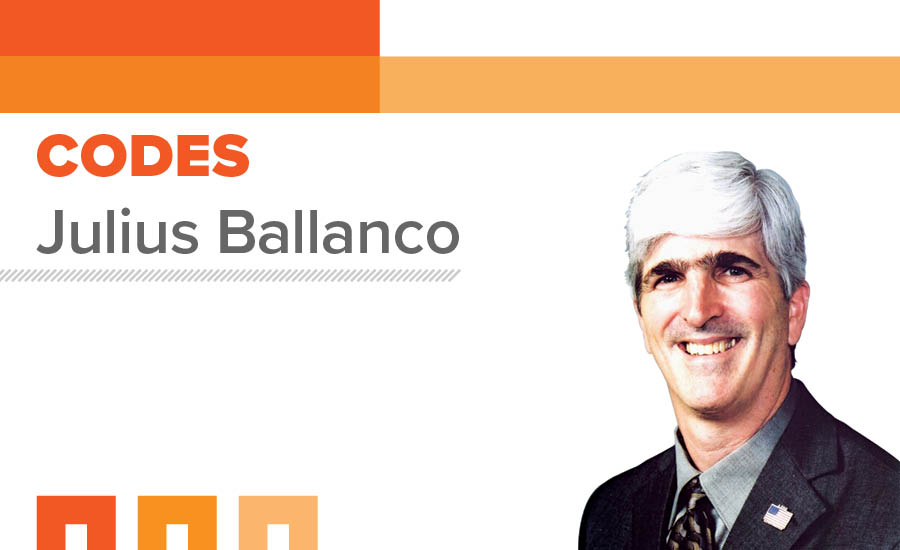Unsurprisingly, IAPMO announced that its first meeting to review the plumbing code and mechanical code changes will be held virtually. Rather than holding the meeting during the first week of May, the meetings will be split — each five days long — with plumbing being held the first week of May, and mechanical being held the third week of May. The meetings will be four hours in length going from 8 a.m. to 12 p.m. PDT.
While it is disappointing that COVID-19 stole another in-person code hearing, at least it will open up the process for others to participate. Rather than traveling to Anaheim, California, you can sit in front of your computer and watch — or participate — in the code change process.
IAPMO will be issuing the monograph of code changes on April 1. You will be able to download them from www.iapmo.org/code-development. If it is like any other normal year, there should be in the neighborhood of 300 code changes to the Uniform Plumbing Code, and 200 code changes to the Uniform Mechanical Code.
On the docket
One of the hot topics for both the plumbing and mechanical codes will be Legionella. The 2021 Uniform Plumbing Code added a new appendix on Legionella. During the past year, IAPMO has had a Legionella Task Group developing code changes to both the mechanical code and the plumbing code. I had the pleasure of chairing this Task Group.
While the primary purpose of the Task Group was to consider adding an Appendix to the mechanical code on Legionella, the group also proposed changes to the plumbing code appendix. The mechanical code requirements are centered around hydronic systems, including cooling towers. There are proposed steps that must be taken, based on the results of testing for Legionella. This will be a first for the mechanical code in mandating remediation action.
The reason for including the requirements in the appendix is to allow a jurisdiction to consider adopting these requirements. Once there is wide acceptance of the appendix, requirements tend to move into the body of the code.
Currently, the plumbing code requirements do not spell out specific remediation requirements. The proposed change would add control measure requirements to the appendix.
ASHRAE 188 and Guideline 12, on Legionella risk management, are referenced in the proposed appendix to the mechanical code. Both documents are already included as reference documents in the plumbing code appendix.
Other significant code changes have been proposed by the WE-Stand committee. WE-Stand is the water efficiency and sanitation standard published by IAPMO. In the latest 2021 edition of WE-Stand, new requirements have been added regarding gray water and black water systems. The WE-Stand committee had a number of subcommittees working on specific subject matters, including gray water and black water systems. While the subcommittees developed extensive requirements for these systems, the WE-Stand committee did not accept all of the proposed revisions. As such, only the partially accepted gray water and black water requirements will be proposed to be included in the plumbing code.
Black water is only permitted to be used for flushing and irrigation, when fully treated. This would be similar to the current gray water requirements. The major objections have always been the continuous monitoring of the black water treatment systems. If the systems do not properly treat the black water, there could be a sanitation issue in the building. This is an area that will probably garner a lot of discussion at the upcoming code meeting.
Gender neutral toilet rooms will also be on the agenda of plumbing code changes. The ICC International Building Code added the allowance of gender neutral toilet rooms. The Building Code stipulates privacy compartments for all water closets, and privacy compartments or designated separate areas for urinals.
The efforts to allow gender neutral toilet rooms in the building code was championed by architects. The change was also implemented into the 2021 ICC International Plumbing Code. States that adopt the Uniform Plumbing Code also adopt the International Building Code. Thus, with the 2021 edition of both codes, one allows gender neutral toilet rooms, while the other (Uniform Plumbing Code) does not. The proposed change would add an allowance in the Uniform Plumbing Code to provide gender neutral toilet rooms when multiple fixtures are installed.
Two other areas with major code changes are storm water and building reopening. The storm water change would allow for the engineered design of a storm drainage system. This change would allow designs consistent with the ASPE Research Foundation report on roof drainage. As pointed out in the report, the simplistic storm drainage sizing method currently in the code can result in failures when a microburst, or 100 year storm, is experienced.
The building reopening code changes will introduce a new document being developed by IAPMO regarding plumbing and mechanical systems. COVID-19 has presented some interesting issues when a building is closed for an extended period of time for a pandemic. What needs to be done to open a building? Is the water safe to drink? Are the mechanical systems ready to be operated?
These are all issues that are addressed in the new document, which is written by a group of experts assembled by IAPMO. Having worked on the committee, it has been impressive to see all that is included in the document. While not currently published, the building reopening document will be available before the end of the code change cycle. The areas addressed include the health and safety aspects of both plumbing and mechanical systems.
While we all hope that there is never another pandemic in our lifetime, COVID-19 has raised the issue regarding other long periods of closing of buildings. A good example would be seasonal buildings. Certain buildings are only used in the summer months. Others may only be used during the ski season in the winter months. After sitting vacant for months at a time, there are procedures that need to be followed to reopen a building safely.
With both ICC and IAPMO going virtual for the code change hearings for the 2024 codes, I would strongly encourage everyone to tune into the hearings to see how the code changes are addressed. While it may not sound exciting, I guarantee that you will find it fascinating to listen to the discussions, both pro and con, to the various code changes. It will provide a better understanding of the code when implementing the requirements into your design.
The views expressed here are strictly those of the author and do not necessarily represent PM Engineer or BNP Media.



